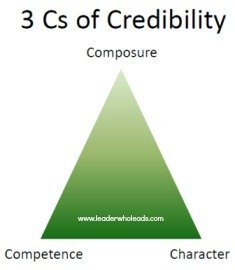Leadership Traits
Successful leaders possess certain qualities and traits. These leadership traits distinguish them from the rest.
Just like there is a collection or combination of traits that make you “you,” leaders who lead possess a combination of traits that contribute to their success.
The "Trait Theory of Leadership" has its origins in the work of Thomas Carlyle, a Scottish philosopher. The focus was to identify traits of effective and ineffective leaders to determine if there were inherent qualities that caused certain individuals to emerge as true leaders compared to "non-leaders."
They goal was to determine if there are core personality traits that causes the "leader within" to emerge. It relates to the "nature vs. nurture" concept, which is also referred to as the "Are leaders born or made?" debate.
Traits of Good Leaders
Good leaders possess certain leadership traits, key ingredients which combine to help them be highly effective leaders. Those traits are listed in seven (7) categories: physical, emotional, social, intellectual/intelligence, communication, experience and trustworthy.
Of these categories listed above, physical health is often overlooked or neglected. Leaders have a broad scope of responsibility and must be able to overcome challenging and stressful situations; therefore, maintaining good health is critical to success in the long-term.
As you identify goals to develop as a leader who leads, remember to put physical health at the top of your list.
Harvard Business School Professor Linda Hill, one of the world's experts on leadership, had identified eight essential qualities successful leaders possess. I found it to be insightful. I think you will too. Check it out here:
8 Essential Qualities of Successful Leaders
Credibility
Much research, study and debate has occurred, and continues still even today. But one common leadership trait is that a leader must be trustworthy, authentic, credible.
A leader must be credible. A leader who leads is believable. They possess form AND substance.
If a leader is not credible, s/he will not gain the respect and followership of those he has been appointed to lead.
Very early in my career I was introduced to the “Three (3) Cs of Credibility.” They are: Competence,Character, Composure.
Thankfully, I was introduced to this at a crucial time in my career and was foundational in my development as a leader. My journey along the leadership continuum has been a constant focus on developing in these three areas.
Leadership Traits

Competence speaks to your Intelligence Quotient (IQ). It is demonstrating the ability to learn about your “craft” and your company, and take what you learned to apply it in practical ways as you lead the people on your team.
According to freedictionary.com, Competence is the "state or quality of being well qualified."
Composure refers to your Emotional Quotient (EQ). It is the demonstrated ability to manage your emotions and empathize with the emotions of others.
Synonyms for composure include "self-control, poise, rational and balanced."
Character relates to your Character Quotient (CQ). It is the combination of those traits and qualities that make you who you are, at your core. It speaks to your nature and disposition.
Character relates to the essence of who you are, that governs what you do consistently and forms your reputation.
Qualities of a Leader Who Leads
A Leader Who Leads possesses certain qualities that lend to their credibility and success.
Those leaders and mentors who have left an indelible imprint on who I am modeled the 3 Cs of Credibilty.
As you progress along your leadership journey, develop these qualities and you will leave a lasting legacy in the lives of those you lead.
For more, please take a look at Leadership & Trust.
Go to Home.
Improve Your Relationship with Your Boss
Are you looking to improve your relationship with your boss? If so, the Boss Relationship Worksheet will help you better understand and communicate more effectively with your immediate supervisor.
To download your copy, submit your information on the form below.
After completing the Boss Relationship Worksheet, you will find that the following will prove helpful in showing you how to cultivate a better working relationship with your boss:
 |
I published my first book and I am beyond excited.
Get your FREE copy of Called to Lead!
ORDER PRINT HERE
Leaders don't
create
followers.
Leaders
create
other
leaders.
- Tom Peters














